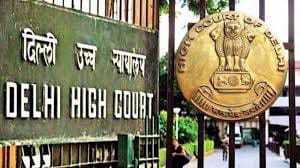New Delhi, July 23: In a significant relief for the Faizyab Masjid and Madrasa, the Delhi High Court has directed the Delhi Development Authority (DDA) to provide an alternate plot of land within four weeks, stated the Hindu. This decision comes as the 40-year-old religious institution in Sarai Kale Khan, Nizamuddin East, faced imminent demolition.
The court has scheduled the next hearing for September 3, 2024, to review the progress of the alternate land allotment and any further developments.
A division bench, comprising Acting Chief Justice Manmohan and Justice Tushar Rao Gedela, issued this order while hearing a Letter Patent Appeal (LPA) filed by Shamshad Ali and others. The bench instructed the DDA to allocate a plot of equal size, situated as close to the current location as possible. The appeal was motivated by Inamurrahman Khan from the Wakf Department of Jamaat-e-Islami Hind.
This decision overturns a previous ruling by Justice Amit Sharma of a single-judge vacation bench, which had dismissed the mosque committee’s plea against the DDA’s demolition decision on May 12, granting them a month to vacate the premises.
However, the court’s relief is contingent on the mosque committee vacating the current premises within one week, allowing the DDA to proceed with the demolition. The mosque management had previously agreed to remove religious materials and hand over the site.
The mosque, built in 1972 and registered as a Waqf property in 1989, was labeled an unauthorized construction on public land by the DDA earlier this year. In response, mosque caretaker Deen Mohammad initially filed a petition through Advocate Fuzail Ayubi to prevent the demolition, which led to interim protection orders by Justice Sachin Datta.
Unexpectedly, Deen Mohammad withdrew his petition, prompting Justice Amit Sharma to order the premises vacated within four weeks. This decision sparked concern among local community leaders, leading Shamshad Ali and others to file the LPA through Advocates Sitab Ali Chaudhary and Gufran Ali.
The petitioners argued that the mosque and madrasa were not encroachments and that the Delhi Religious Committee lacked authority to make recommendations regarding Waqf properties under the Waqf Act, 1995. They also raised concerns about potential conflicts of interest within the committee.
This latest directive from the Delhi High Court aims to balance the enforcement of public land regulations with the protection of established religious institutions, pending the resolution of the ongoing legal proceedings.




